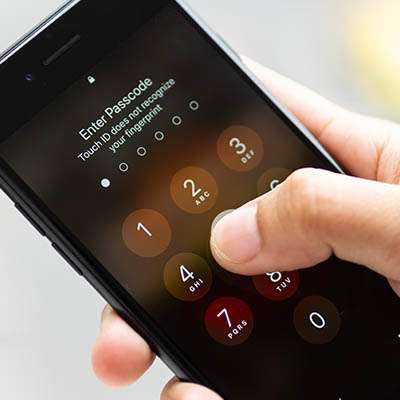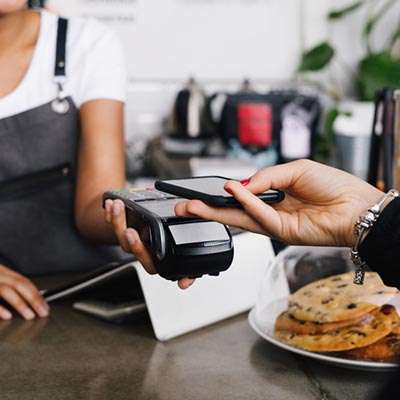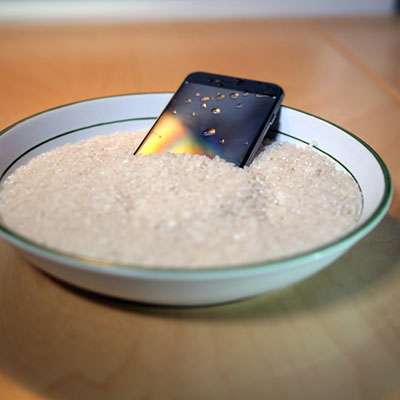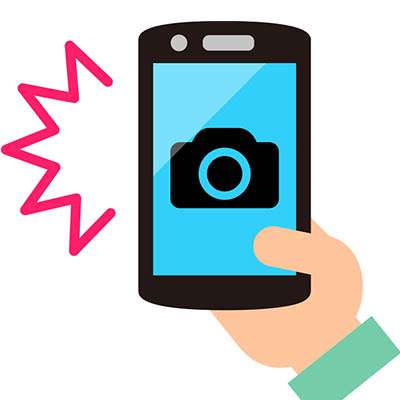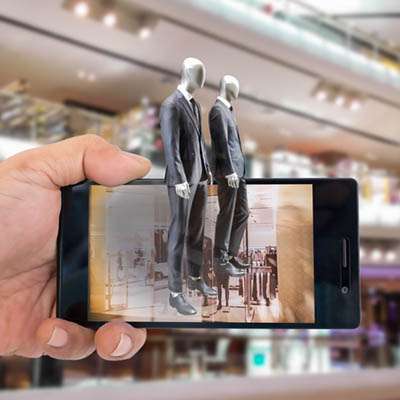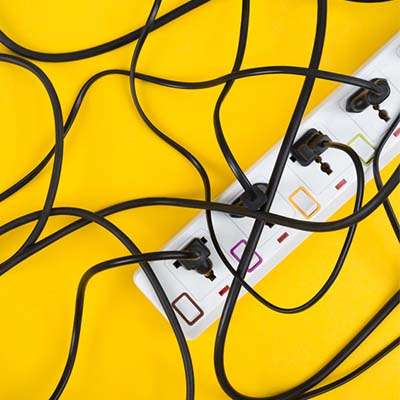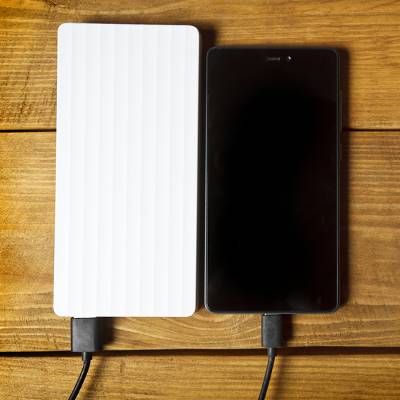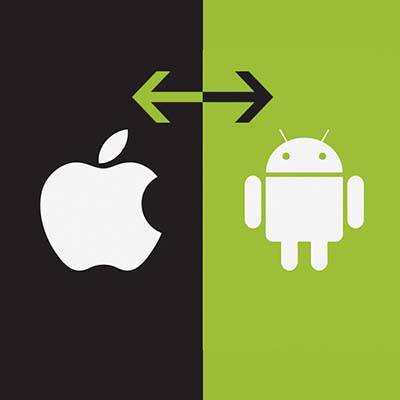If you were tasked with looking up a phone number, calling a business, and navigating a new-to-you area, would you be able to without your smartphone? For some of us the answer will still be yes, but for a majority of us the answer is no. Smartphones have swiftly transitioned from a calling device to one of our most valuable tools. Shopping, navigating, video streaming, and an incredible amount of other capabilities are all at the palm of your hand.
Macro Systems Blog
Mobile devices are with us nearly everywhere these days, leading us to use them more and more in all aspects of lie, including for business purposes. As a result, cybercriminals have even more motivation to target them. Below is a list of practices to help you circumvent a mobile device being the downfall of your organization's security.
You’ve probably noticed the increased use of smartphones. No matter where you go, people are on their phones. For the modern business, employee smartphone usage can be a major source of irritation. Let's look into how smartphone usage helps and hurts a business and how to go about keeping employees from being on their phones for large chunks of the workday.
A friend tells you a story about an app that is really fun or convenient so you download it. After you download and open it up, you receive a pop up asking if you want to allow notifications from that app. You click “yes” just to get to the application and sometime later, you are asleep or working and you get a notification from the company behind the app you downloaded. Then you get another one, and another, and since you’ve click “yes” on 25 little pop-ups, you are getting a constant flow of notifications that you could completely do without. Does this scenario sound familiar? Unfortunately, in our modern world, it probably does.
One of the most vital aspects of smartphones is how portable they are; business professionals can be productive no matter where they are. Alas, this also means that they have more of an opportunity to lose their devices, along with the data they contain. If the device is Android-based, then you can alleviate this trouble thanks to built-in features that can help you locate it.
In this era the smartphone camera has transformed into one of the biggest selling points when consumers want to buy a new phone. This is mostly because it is vital to the use of many of the applications that your average user utilizes the smartphone for. It just goes to show that, in less than two decades, how much more utility the phone has than it did when the Samsung SCH-V200 first provided users the option of taking pictures with their phone.
Some may have heard the term augmented reality, but they'd be surprised to learn just how much augmented reality they already utilize in their life. For the majority of people who use a smartphone, A.R. applications (like a camera app) are already used heavily. Let's take a look at augmented reality and how it is going to be utilized in the future.
Learning how to utilize a new technology can be difficult. If you’ve been a committed Apple customer but are now considering switching to Android, you should know that simple differences between the two platforms can be disorienting. Let's go over some information you need to know when switching away from the iPhone.
The holiday season is nearly here! Filled with lots of gift giving and sharing, you’ll want only the best smartphone to ensure that you can keep in touch with friends, family, and even your clients in case of an emergency. Here are aspects of each major smartphone so that you can make an educated decision about which one you want to purchase.
Have you ever received unsolicited calls from unknown numbers? Sometimes you might receive them at incredibly inconvenient times, such as while you’re home and trying to wind down after a long day’s work. While Caller ID and voicemail have allowed users to keep unwanted calls to a minimum, there are other ways that you can block a caller entirely from reaching your smartphone.
 One telling sign of how far we’ve come as a society is the selfie. What’s a selfie you ask? Not only is the selfie a real thing, but it’s a legitimate word. According to the Oxford Online Dictionary, a selfie is, “A photograph that one has taken of oneself, typically with a smartphone or webcam and shared via social media.” Aiding in the popularity of selfies is the rise of selfie technologies, such as these three examples.
One telling sign of how far we’ve come as a society is the selfie. What’s a selfie you ask? Not only is the selfie a real thing, but it’s a legitimate word. According to the Oxford Online Dictionary, a selfie is, “A photograph that one has taken of oneself, typically with a smartphone or webcam and shared via social media.” Aiding in the popularity of selfies is the rise of selfie technologies, such as these three examples.
 Mobile computing is literally everywhere; and, yes, that's the point of the technology. The mobile computing boom has presented major retailers with the opportunity to begin offering smartphones and tablets. The world's largest online retailer, Amazon, is the next company to launch a mobile device platform, by offering their new "Fire" smartphone, CEO Jeff Bezos announced on June 18th.
Mobile computing is literally everywhere; and, yes, that's the point of the technology. The mobile computing boom has presented major retailers with the opportunity to begin offering smartphones and tablets. The world's largest online retailer, Amazon, is the next company to launch a mobile device platform, by offering their new "Fire" smartphone, CEO Jeff Bezos announced on June 18th.
 Mobile devices are changing the technology landscape in the modern office. What kind of changes are smartphones specifically having on human productivity? We are looking at this question in two parts. In our last blog article we looked at how mobile devices impact networking. In part two, we will take a look at smartphones and human awareness.
Mobile devices are changing the technology landscape in the modern office. What kind of changes are smartphones specifically having on human productivity? We are looking at this question in two parts. In our last blog article we looked at how mobile devices impact networking. In part two, we will take a look at smartphones and human awareness.
 What kind of phone do you have? Or rather, what kind of person does your phone have? With people relying on constant connectivity and constant communication, do devices have an interface for constant productivity, or is it just a constant distraction? Do all these outstanding new gadgets have the kind of value business professionals claim they do?
What kind of phone do you have? Or rather, what kind of person does your phone have? With people relying on constant connectivity and constant communication, do devices have an interface for constant productivity, or is it just a constant distraction? Do all these outstanding new gadgets have the kind of value business professionals claim they do?
 2013 might go down in history as the bridge year between high-end handheld electronics and wearable gadgets that offer enhanced flexibility and access, but for now, the best electronics for communication, collaboration, and convenience are the handheld computers that we've learned to lean on. Below are some of the top smartphone options on the market.
2013 might go down in history as the bridge year between high-end handheld electronics and wearable gadgets that offer enhanced flexibility and access, but for now, the best electronics for communication, collaboration, and convenience are the handheld computers that we've learned to lean on. Below are some of the top smartphone options on the market.

